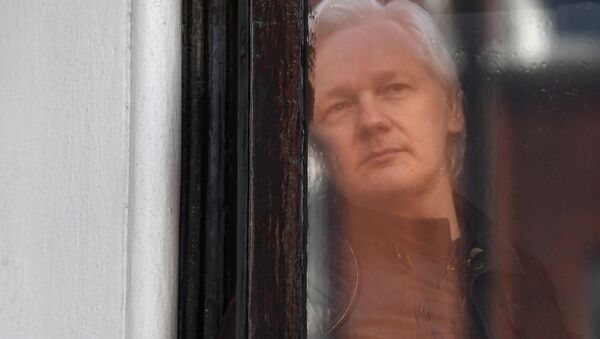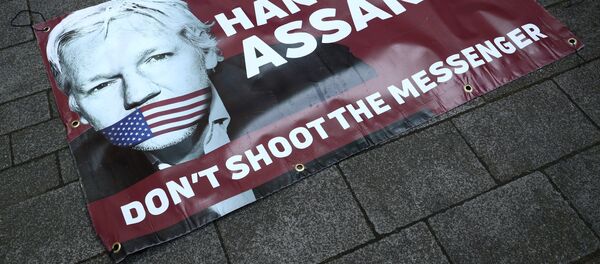Sputnik spoke to Robert Tibbo, Humans Right’s Lawyer and the Lawyer of Edward Snowden, to discuss the prospects of Assange extradition to the US.
Sputnik: Ecuador’s president, Lenin Moreno, has been assured by Britain’s Foreign Office that Wikileaks Founder Julian Assange will not be extradited to a country where he could face the death penalty. Firstly how significant and will Ecuador hold up these promises?
Robert Tibbo: The starting point of where things have been illegal, egregious, unconstitutional; has been president Moreno himself. Mr. Moreno was aware of Assange's situation having been given asylum in the UK Ecuadorian Embassy in London and have nevertheless stripped him of asylum stripped him of his citizenship and invited the British police to come in and remove him.
Mr. Moreno, in his first statement to the public, which was by a video had given my view insufficient reason or justification to strip asylum of Mr. Assange and should appear to be that Mr. Moreno simply saying it just became inconvenient. That's not the legal test strip somebody from the asylum. The second thing is President Moreno or the Ecuadorian Ambassador had given Mr. Assange 30 minute notification before the British police came in and the removed him.
READ MORE: Ecuadorian Agencies Saw Over 40Mln Cyberattacks After Assange's Arrest — Reports
That's clearly insufficient time. Looking at Mr. Assange's health; his health has been found by at least one doctor who has spoken publicly that Mr. Assange's detention over seven years, which also includes the denial by the UK authorities to allow Mr. Assange to get medical treatment outside the Ecuadorian embassy without losing his asylum status. The cumulative impact on Mr. Assange, which has been amounted to severe pain and suffering, is the exact definition of torture under the UN Convention against torture. If you go back to what Ecuador has done; they've breached Mr. Assange's constitutional rights under Ecuadorian law, and they failed to abide by international law under the unconventional torture, but also the International Convention Covenant on Civil Rights, which also prohibits torture.
Sputnik: Could we see any punitive measures taken against Ecuador following the arrest made of Assange last week?
Robert Tibbo: In terms of where Mr Assange is right now, he's in a situation where as you asked earlier, presentations or undertakings by the US government that Mr Assange will not be extradited or removed to a country where he takes the risk of loss of life. It's a well-established law in the UK that a government cannot extradite, deport or remove an individual if they're going to face the death penalty or loss of life. There's nothing, nothing extraordinary about that.
READ MORE: Lawyer Filed Appeal Against Detention of Swedish Allegedly Linked to Assange
Sputnik: We’ve seen a number of high profile celebrities come out in support of Assange; what effect will this have on the case and moreover – what does his arrest last week mean for the future of whistleblowing and whistleblowers?
Robert Tibbo: Now this Assange case really is bringing everything to a crossroads in terms of journalism, freedom of expression and the length of the journalists to report and also the rights of the public and wider society to receive that information, especially when there's egregious criminal conduct. This is a complicated case and it's going to take a number of years to be resolved, but through this case, whether Mr Assange succeeds or not, there's going to be judgments made by the courts and there's going to be decisions made by governments in the future based on this. This is this is not a clear cut case and there's every indication from the Ecuadorian embassy to the motivations of the US government. This is more about stifling journalists and the state funding, freedom of expression, to report on the content by government.
The views and opinions expressed by the contributor do not necessarily reflect those of Sputnik.




